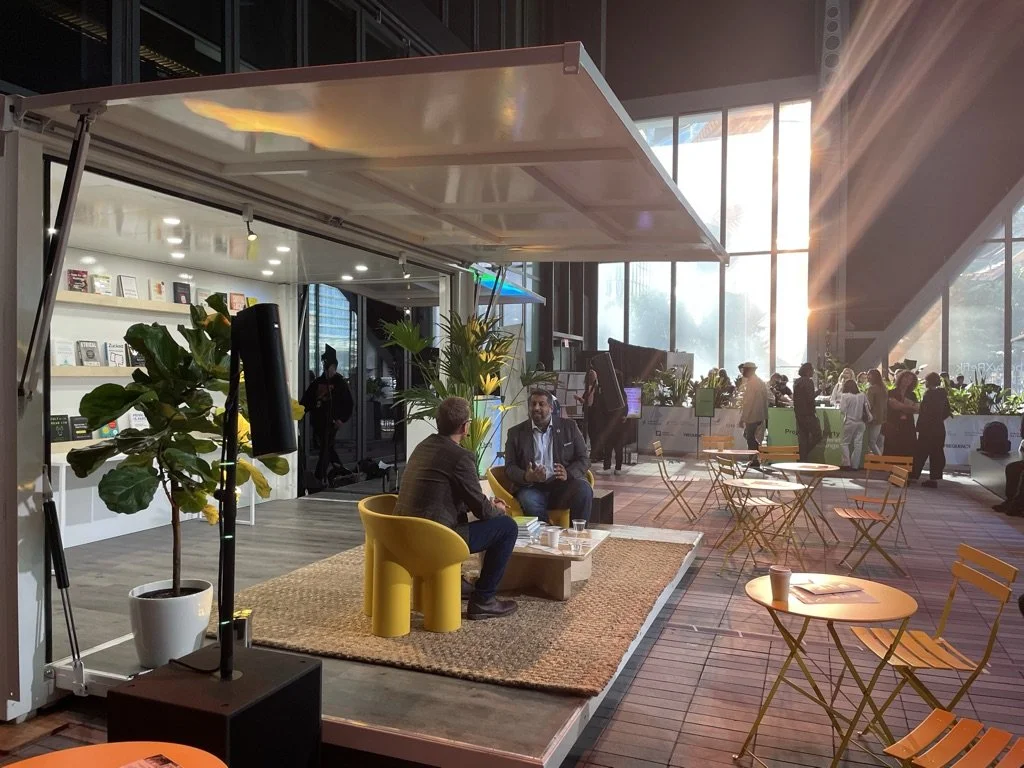All Tech Is Human Library Podcast Series #7 | Vilas Dhar
In the seventh conversation of a sixteen-part All Tech is Human Library Podcast interview series, entrepreneur, technologist, human rights activist, and President at the Patrick J. McGovern Foundation Vilas Dhar joins David Ryan Polgar for a conversation about how we can construct a more responsible tech future. How can we create technologies that center the voices of underrepresented people?
Check out all of the episodes in our series here.
About Vilas Dhar
Vilas Dhar is President of the Patrick J. McGovern Foundation, a 21st century philanthropy advancing artificial intelligence (AI) and data solutions to create a thriving, equitable, and sustainable future for all. Under his leadership, the Foundation bridges technological innovation and social impact with a commitment to justice and equity. These core values sustain his deep optimism that technological advances can ensure a more prosperous and sustainable future for all.
Vilas is an entrepreneur, technologist, and human rights advocate with a lifelong commitment to creating more robust social institutions that foster shared opportunity. Vilas has served as an independent Trustee of the Foundation since its inception in 2017 and has served as chair of both the Audit and Investment committees. Fusing his experience as a lawyer, an investor, and a philanthropist, he has dedicated his professional pursuits to exploring solutions for some of the world’s largest challenges like child labor, refugee crises, and data privacy and sovereignty.
Key Takeaways
In order to think ahead on the wicked problems ahead of us, we need to consider the technology that will guide us in the next 20 years of transformation, and the institutions and power structures that will inform these changes.
Technologies deployed to support advocacy, access, and racial justice can reframe the way we view successful endeavors away from market-driven incentives.
Rather than discuss what a responsible tech future should look like, we can make it happen through human creativity, shared economic opportunity, and equality of power.
Quotes
“And to me, there's no clearer connection than a world in which we're building technologies that create new opportunities, and yet don't inherently have access to justice and equity and structures of power. So what do we need to bring to technology? We need to bring that perspective of human dignity to what we sometimes call ‘human rights.’ But to me that's quite a specific technical term. We need to build technologies that support people's political power.” 2:23 - 2:48
“We've taken some really smart people and as a society we place trust in them to build amazing new technologies. But we've stopped there. We've kind of said, ‘Build cool things.’ And let the market decide what of those things will be taken and scaled to the world. I think we haven't done enough. I think what we should be saying to really smart people that are really well resourced is build amazing technology that makes the human experience better.” 3:25 - 3:51
“ Well, technologies that reduce the distance to power, that let citizens more effectively advocate for their rights with their governments. Right. We're seeing some incredible technologies being developed around how governments deliver benefits to their people. I think technologies that allow individuals to advocate for racial justice, that allow them to actually aggregate in communities and step forward with a common and shared voice. These are technologies we should all be investing in.” 7:07 - 7:32
“…But rather when we deploy something, understand how it's creating new vulnerabilities and at the same time how it's advancing new opportunities. Allow there to be feedback loops that let communities come back and say, ‘Here's how we can make these things better,’ and maybe most importantly, democratize the access to creation of these tools.” 7:53 - 8:12
“[The future of technology] should inspire us to human creativity. It should let us do the things that bring us joy, whether that's art or literature. It should inspire us to create more and better and augmented things. It should create shared economic opportunity, which means that as these technologies are creating new models for how we might build economic systems, we need to move to a world where there's a cornucopia of bounty and that everybody shares in it equally. We need to live in a world where technology transforms political power. Where individuals understand what's happening are able to use technology to influence policy because I have a deep hope and a confidence that if we empowered communities to be a part of shaping our shared destiny, we'd live in a world where all of these things I've just described would happen naturally. So really, to me, the best form of a technology future is one where people are at the center and have the ability to make decisions that create a dignified future for all of us.” 17:53 - 18:52
Learn More About Vilas Dhar
LinkedIn | Twitter | President’s Message
Credits:
David Ryan Polgar - Moderator
Vilas Dhar - Interviewee
Unfinished Live - Producers



